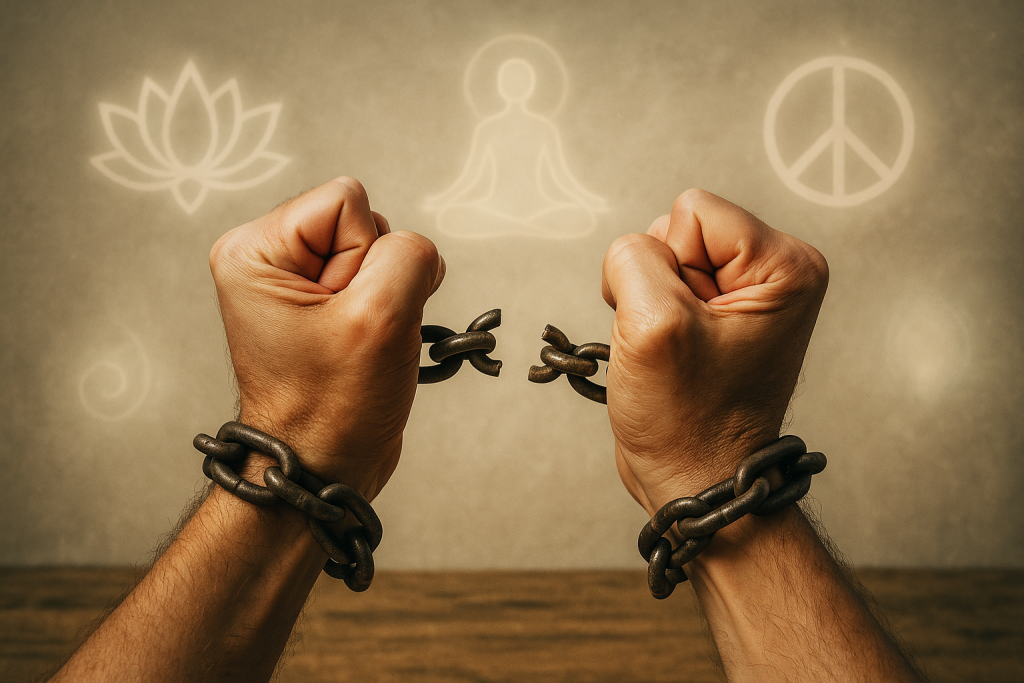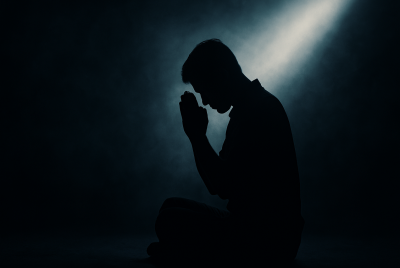Spiritual Collectivism or Cult? How to Tell the Difference
We may earn a commission for purchases made using our links. Please see our disclosure to learn more.
Spirituality bonds individuals together. However, that sense of connection can sometimes transcend a boundary, moving from a healthy community to something far worse. If you’ve ever thought, “Is this spiritual organization really a cult?” You are not alone. Spiritual collectivism and cults may appear to be similar on the surface, yet there are significant differences.
Let’s look at how to tell the difference, protect yourself, and embrace a community that empowers you rather than controls you.
What Is Spiritual Collectivism?
Core Beliefs and Values
Spiritual collectivism revolves around shared ideals and a sense of purpose. It occurs when a group of individuals join together to discuss spiritual concepts or practices with the goal of personal progress, mutual support, and communal well-being. Spiritual collectivism can be seen in a variety of settings, including yoga classes and religious communities.
At its best, spiritual collectivism makes people feel connected, supported, and inspired. The group values open-mindedness, tolerance for uniqueness, and a commitment to the greater good.
Famous Examples of Spiritual Collectivism
You might know about intentional communities like the Findhorn Foundation in Scotland or the Plum Village tradition led by Thich Nhat Hanh. These groups attract people seeking spiritual growth in a supportive environment, but they operate on the principles of consent, openness, and respect.

How Cults Differ from Healthy Spiritual Groups
Not all spiritual collectivism is safe. Some groups cross a line—often quietly at first. Here’s how to tell the difference.
Cult Warning Signs
- Charismatic, unquestionable leader: One person holds all the power and discourages questions.
- Isolation: Members become separated from their friends and family outside the group.
- Rigid rules: There’s little room for individuality.
- Control over daily life: Even minor choices are dictated by the group.
- Fear and manipulation: Members feel anxious about leaving or disagreeing.
Psychological Impact of Cults
Cults use psychological tricks to keep members in line—like guilt, shame, and social pressure. This kind of control often results in anxiety, depression, or even emotional trauma. If a spiritual group makes you feel smaller instead of stronger, take that as a red flag.
Red Flags: When Does Spiritual Collectivism Become a Cult?
The line between a supportive spiritual group and a cult isn’t always obvious. Here are some warning signs that spiritual collectivism is sliding into dangerous territory:
- Dissent isn’t allowed. Members who ask questions get silenced, shamed, or excluded.
- The group is always right. There’s no room for outside perspectives.
- Money, time, and loyalty are demanded. The group may require large financial contributions or constant involvement.
- Leaving is discouraged or punished. Members are warned of dire consequences if they try to leave.
If you notice several of these, it’s time to reconsider your involvement.
Why People Join: The Human Need for Belonging
It’s easy to ask, “Why would anyone join a cult?” But the truth is, everyone wants to belong. We crave meaning, connection, and understanding. Cults often offer answers to life’s toughest questions, plus instant friendship and purpose.
But healthy communities never demand your soul in return for support. True spiritual collectivism uplifts you, it doesn’t break you down.
Healthy Spiritual Communities: What to Look For
Not all spiritual groups are cults! Here’s what makes a community safe, healthy, and genuinely supportive:
- Openness to questions: Leaders and members welcome different viewpoints.
- Respect for boundaries: No one pressures you to give more than you want—money, time, or devotion.
- Encouragement of outside connections: You’re free to see friends and family outside the group.
- Room for growth: You’re supported in becoming your best self, not molded to fit someone else’s idea.
If you’re looking for spiritual tools that help you connect with your intuition in a positive way, consider exploring practices like using a pendulum for guidance. Approaches like these are most powerful in communities that value curiosity, learning, and your personal spiritual journey.
If a group helps you shine—rather than shrink—it’s a good sign.
Scientific Research: What Studies Reveal About Spiritual Collectivism and Cults
If you’re serious about understanding where healthy spiritual collectivism ends and cult-like control begins, it helps to look at the science. Two of the most insightful studies in this field break down the psychological impact of cult environments and explore how collectivist values shape spiritual experiences. Here’s what the research reveals:
The Psychological Impact of Cultic Environments
A landmark review titled Are Cultic Environments Psychologically Harmful? critically examined how life inside a cult can affect your mental health. The study found that, while most new members don’t enter with mental health problems, involvement in high-control groups often leads to increased psychological distress—including anxiety, depression, and dissociation. At first, members may appear well-adjusted, but the pressure to conform and the loss of personal freedom can trigger emotional struggles over time.
Key takeaway: Cult environments may not seem harmful at first glance, but the hidden psychological toll is real and often only surfaces after prolonged involvement.
How Collectivism Shapes Spiritual Transcendence
For a broader look at community-based spirituality, the research article Relation of Individualism–Collectivism and Ethnic Identity to Spiritual Transcendence offers valuable insights. This study examined how cultural values like collectivism influence spiritual experiences across different backgrounds. The results showed that people from collectivist cultures often report higher levels of spiritual transcendence, especially when their group values and identities are affirmed and respected. However, the positive effects only hold in healthy, open environments—unlike the rigid, controlling nature of cults.
Key takeaway: Collectivist spiritual groups can be deeply uplifting, but only when they respect individual identity and boundaries.
Curious to learn more? Check out the full studies through the links above for a closer look at the science behind spiritual collectivism and cult dynamics.

Recommended Books and Resources
Learning more about spiritual collectivism and cults can help you make informed choices. Consider checking out these well-reviewed books:
- Combatting Cult Mind Control by Steven Hassan
- Cults in Our Midst by Margaret Thaler Singer
- The Art of Community by Charles Vogl
- The Road to Character by David Brooks
- Breaking the Spell: My Life as a Rajneeshee and the Long Journey Back to Freedom by Jane Stork
Top 5 Amazon Picks: Books & Tools for Spiritual Growth
Ready to deepen your understanding or protect your peace? These top-rated Amazon picks support healthy spiritual exploration:
- Combatting Cult Mind Control by Steven Hassan
A go-to resource for understanding cult tactics and protecting yourself. - Cults in Our Midst by Margaret Thaler Singer
Insightful analysis of cults and recovery. - The Art of Community by Charles Vogl
How to build lasting, meaningful groups. - Boundaries by Dr. Henry Cloud & Dr. John Townsend
Essential for learning to set healthy boundaries in any relationship. - Freedom of Mind
A hands-on resource for healing and reclaiming your freedom.
Conclusion: Seek Connection, Not Control
Spiritual collectivism can bring joy, healing, and growth. But when a group’s sense of unity becomes control, it’s time to walk away. The difference lies in freedom—freedom to question, to leave, and to be yourself.
Trust your instincts. Healthy communities encourage your personal journey. Cults demand conformity and obedience. Your spiritual path belongs to you—no one else.
FAQs
What’s the difference between a spiritual group and a cult?
A spiritual group is open, supportive, and respects individuality. A cult controls members, discourages questions, and often centers around a single leader.
Are all collectivist spiritual communities dangerous?
No. Most spiritual collectivism is positive and nurturing. The danger lies in groups that use manipulation and control.
Why do people stay in cults?
Cults use psychological manipulation, isolation, and fear to keep people involved. The need for belonging and fear of losing the group also play big roles.
Can you leave a cult safely?
Yes, but it can be challenging. Support from friends, family, and professionals is crucial for a safe transition out of controlling environments.
How do I find a healthy spiritual community?
Look for openness, respect for boundaries, encouragement of outside connections, and support for your personal growth. If you feel free and uplifted, that’s a healthy sign.
Ready to explore your spiritual path? Choose community, not control—and remember, your journey is uniquely yours.



